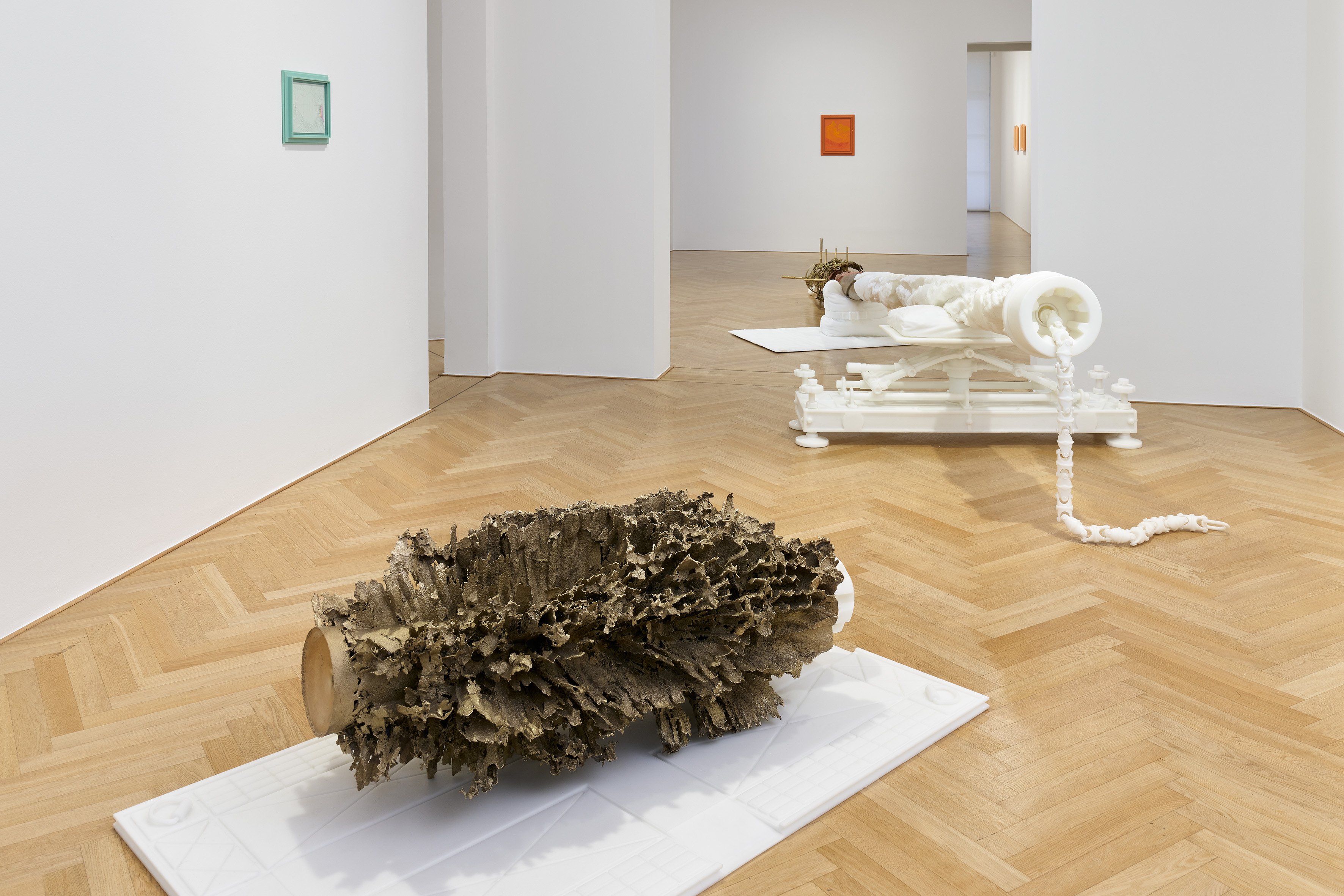
For his first solo exhibition at Berlin’s Galerie Max Hetzler, and his first major outing in the city since the 2007 show “Barney/Beuys” at the Deutsche Guggenheim, American artist Matthew Barney has introduced a new demimonde: a self-referential world of characters and mythologies that explore broader themes related to art and psychology.
Barney is best known for his epic cinematic Cremaster Cycle, and the new work on display at Max Hetzler is similarly structured, with the main set piece being a feature-length film. Titled Redoubt (2018), it is based on a contemporary spin off of Ovid’s story of Diana and Actaeon in the narrative poem Metamorphoses. The video is accompanied by 19 new drawings, two sculptures, and a bronze engraving—all of which respond to the film, which is set in the Sawtooth mountains of Idaho, a remote landscape and site of an infamous standoff between federal agents and a separatist family that ended in multiple fatalities.
The works on display in the show, titled “After Ruby Ridge,” show the depth of Barney’s created worlds, and serve as blueprints for the fully realized film. Rendered in blazing orange and cooler lilac colors, the graphite and gouache works on paper “depict extreme landscapes with an almost violent contrast between the natural and the technical, often displaying a harsh formal incongruity,” according to the press release.
Installation view, “Matthew Barney: After Ruby Ridge” at Galerie Max Hetzler.
Barney’s sculptures, titled Bore and Bole, are also extensions of the world depicted in Redoubt. The former takes the shape of a burnt tree, felled in the Idaho forest and rendered in brass and copper with a narrow tendril unfurling from the tree trunk, a nod to the bore snake, a rod used to clean inside the barrel of a gun. The second work marks Barney’s first foray into sculpting entirely from wood, and maintains the shape of the tree it was harvested from in Idaho.
Below, see more pictures from the exhibition. “Matthew Barney: After Ruby Ridge” is on view at Galerie Max Hetzler through November 6, 2021.
Matthew Barney, American Redoubt (2021). Courtesy of the artist and Galerie Max Hetzler.
Installation view, “Matthew Barney: After Ruby Ridge” at Galerie Max Hetzler.
Installation view, “Matthew Barney: After Ruby Ridge” at Galerie Max Hetzler.
Matthew Barney, Violet Diana (2021). Courtesy of the artist and Galerie Max Hetzler.
Matthew Barney, Inversion (2021). Courtesy of the artist and Galerie Max Hetzler.
Matthew Barney, Turquoise Diana (2021). Courtesy of the artist and Galerie Max Hetzler.